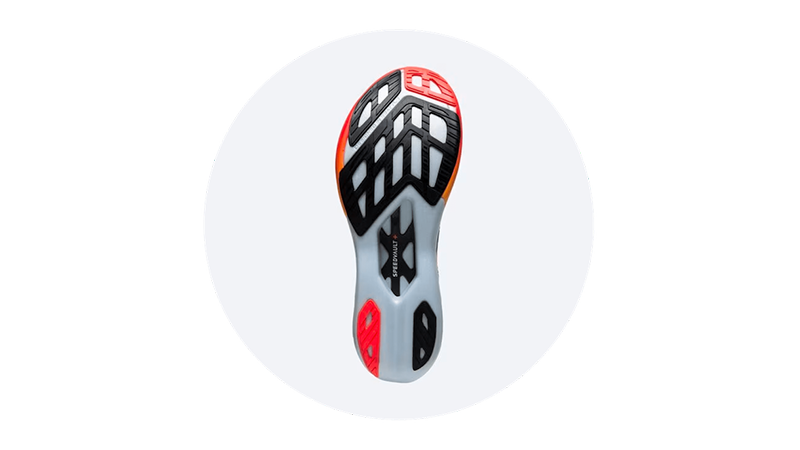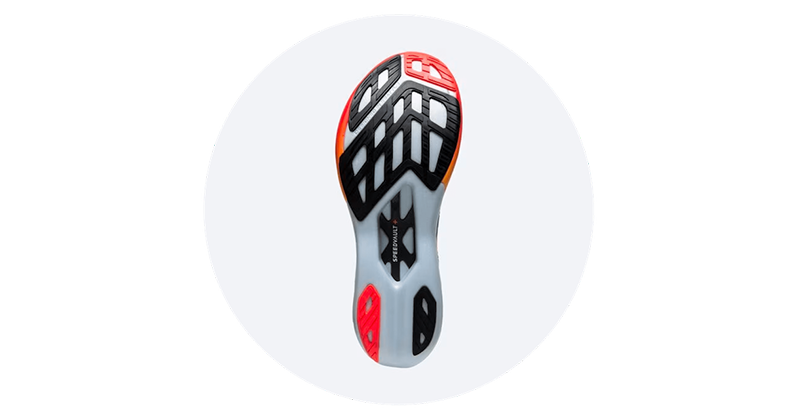
CFR Thermoplastic Plate a Step Change in Running-Shoe Engineering

Processing technology from advanced composites converter Arris has been adopted by Brooks in its next-generation running shoes. The shoes are reportedly the first to incorporate a continuous carbon-fiber-reinforced thermoplastic plate in the sole. The footwear will be available at retailers starting in the spring of 2024.
Running shoe tested in marathons
The footwear was unveiled at The Running Event (TRE) in Austin, TX, at the end of November. Prototype running shoes were previously tested by athletes, including in competitive races such as the Chicago Marathon and New York City Marathon in 2022, as well as the Boston Marathon in 2023.
Brooks’ Footwear Product Line Manager Lee Sackett said, “[Athlete] Zach Panning got our shoe 72 hours before the race. He tested it on a 10-km run and decided to run the marathon in it. He ran a 2:09:28 and cut five minutes off his personal record.”
A product of biomechanical engineering
“With Arris as a partner, we’re able to build a plate that mirrors our commitment to biomechanical expertise and engineering,” added Sackett. “We worked together with Arris to simulate, test, and optimize this plate to innovate the entire shoe’s propulsion system. Arris’ manufacturing and simulation technology helped us take years’ worth of prototyping and execute innovative designs in months, with geometries we were unable to use in the past — a massive step forward for footwear innovation.”
“We’re excited about the Brooks Running team partnership and the public release of its innovative elite running shoes,” said Arris CEO and co-founder Riley Reese. “This reveal marks the beginning of what’s to come and the transformative impact our tech will have more broadly in performance footwear.”
Technology combines composites, additive manufacturing, and high-volume molding
In 2017, the Arris team pioneered the development of its patented manufacturing technology, bringing together the best of fiber-reinforced composites, additive technology, and high-volume molding to produce lighter, stronger, smarter, more sustainable products in the sports, portable electronics, drone, automotive, aerospace, defense, and industrial markets.
Arris’ additive molding is described as an automated manufacturing technology with new material and design latitudes that expand the possibilities for products across industries. 3D-aligned continuous-fiber composite materials are now possible within complex shapes where material composition can change within regions of a single part.
The key production steps are:
Preforming — composite shaping. Continuous dry fiber is impregnated with thermoplastic resin and then shaped to fit a section of the final part. These shapes have continuous composite fibers aligned with the part’s 3D stress-vectors.
3D-aligned preform assembly. All shapes and components are combined into a final assembly.
Mold processing. Final processing of assembly locks in performance, accuracy, surface quality, and part-to-part repeatability.

Leave a Reply